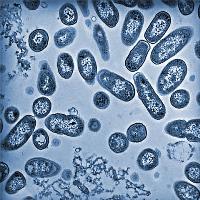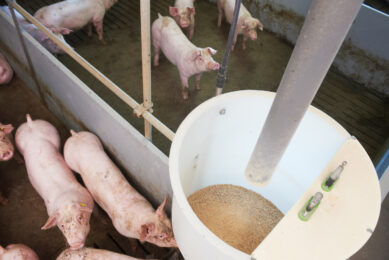Probiotics in pigs may reduce Salmonella

Probiotics have shown promise in reducing incidence of Salmonella (picture) in pigs, say researchers from the UK.
Probiotics, also known as ‘good bacteria’ naturally occur in the gut of humans and other animals and are understood to boost immunity and help prevent bad bacteria from causing illness.
By adding them to feed or food, the aim is to boost the population of good bacteria in the gut to improve the digestive process.
Increase food safety
Now, however, it seems there may be grounds for probiotics to be fed to pigs to reduce incidence of Salmonella – an idea that could not only open a new sales channel for suppliers but also increase the safety of food products and decrease salmonella cases in humans.
Researchers from the UK’s Veterinary Laboratories Agency in Weybridge, Surrey, reported positive results from a 3D model of a pig gut. Their findings are presented today at the meeting of Society for General Microbiology in Edinburgh, UK.
Pig gut model
The experiment involved a special technique based on NASA space technology that enabled the researchers to grow pieces of pig gut in a three-dimentional matrix that replicates the natural environment inside a pig’s gut.
“The 3D model specifically allows us to test the potential benefits of probiotics as viable alternatives to growth promoters in pigs,” said researcher James Collins.
The researchers said that although they have seen benefits from the probiotics, they have not yet established exactly how they work to reduce pathogens and bring about other health benefits. They hope the model will prove instrumental in shedding light on the mechanism.
Related websites:
• Veterinary Laboratories Agency
• Society of General Microbiology
Source: foodnavigator.com
Please also check the special Probiotics file
For the latest pig news, subscribe here











